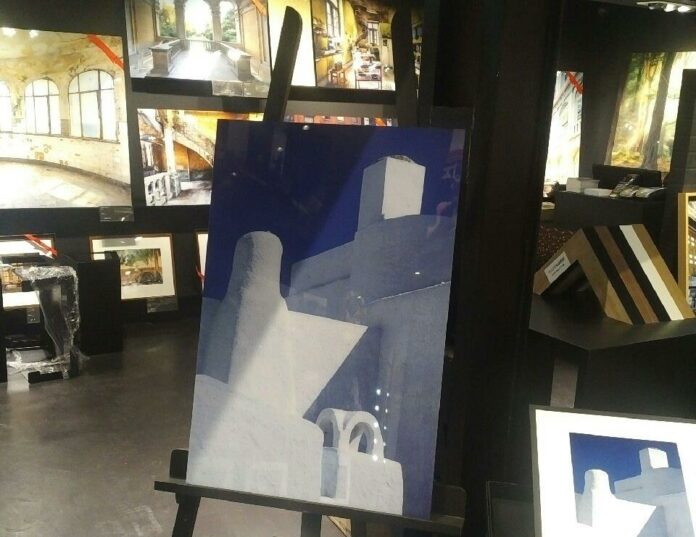Less than three months after accompanying French President Emmanuel Macron on his official visit to Athens, well-known entrepreneur Paul Antoine Briat returns to the Greek capital to inaugurate his new gallery, YellowKorner. In an interview with “N”, Briat describes his concept of easy and inexpensive access to photographic art, while at the same time expressing a view that now is the time to reinvest in Greece. Briat also touches on his expectations regarding economic policy by the new French government. “Stop being the player. Be the coach and referee” is his laissez faire-tinged message.
What is Yellow Korner and what is the idea based on?
YellowKorner was created in 2006 by two friends, Alexandre de Metz and me, both passionate about photography since childhood. From this encounter came an idea and an ambition: to make art photography accessible for all and YellowKorner the leading publisher of art photography.
The concept thus stems from a very simple equation: instead of offering 10 prints for 5.000 euros, YellowKorner chooses to publish 1.000 for 50 euros while preserving irreproachable standards of quality for all of the prints, finishes, and in selecting photographers.
You started in 2006 and today you are internationally active with about 90 galleries. Which elements do you distinguish as being key to the development of the company to date, particularly abroad?
The key point is to work with strong local partners who have the sensitivity to our brand and can understand both retail and art.
What are the aims of Yellow Korner in Athens and why did you choose Greece as one of its destinations?
YellowKorner has been selected among the French companies to join President Macron to Athens beginning of September. He wishes during his speech on the Pnyx to rebuild European Union about culture. That’s exactly our target: make the people meet each other with culture and art. Athens is the perfect city for it!
To what extent would you say that your products are linked to tourism services and how do you assess Greece’s prospects in this area?
Our products have the opportunity to target local and tourists at the same time, BtoB and BtoC markets. When having a week end in Athens it’s ideal to purchase art and bring it back home. That’ s perfect for the Athenians as well that have not yet this type of offer on the market. We target as well hotels and all leisure companies.
How would you describe the relationship between business and innovation?
Both need to go hand in hand
You are one of the entrepreneurs who accompanied President Macron to the Greek capital in September. What impression did you derive from this visit and how do you assess the potential of the Greek economy, with its comparative advantages but also chronic weaknesses, to attract investment?
I was very proud to come with President Macron in Athens. I think he is one of the European leaders who can rebuild the European construction at its beginning: with strong ambitions in economically, politically and culturally speaking. I agree with him when he said that if we let European Union go like it has done for 20 years we can be sure that it will disappear soon. It’s our responsability to take that in hand and our only way to exist in front of USA, China and India.
The Greek economy is recovering and I think it’ s the right time to reinvest in Greece. After many years of turmoil, good signs have come.
How do you assess the performance of the French state in promoting innovation and entrepreneurship?
Macron’s team is focused on entrepreneurship and innovation and they have understand that it’ s the best way to dynamize economy, create jobs… It has perfectly understand that labor laws have to evolve for example by changing them. Most of entrepreneurs trusts now the French state on it. And you knοw that trust is a key element in economy!
What would you say should be the role of the political system and the state in the field of investment and entrepreneurship? In Greece, France and elsewhere.
For a long time in France, and since Colbert (minister of Louis XIV), we have seen state as a player in economy field. It has intervened by owning companies… Now our societies start understanding that state has to promote investment and entrepreneurship of the economical actors instead of doing is itself. In sports, we would say: stop being a player, but be coach and referee.














